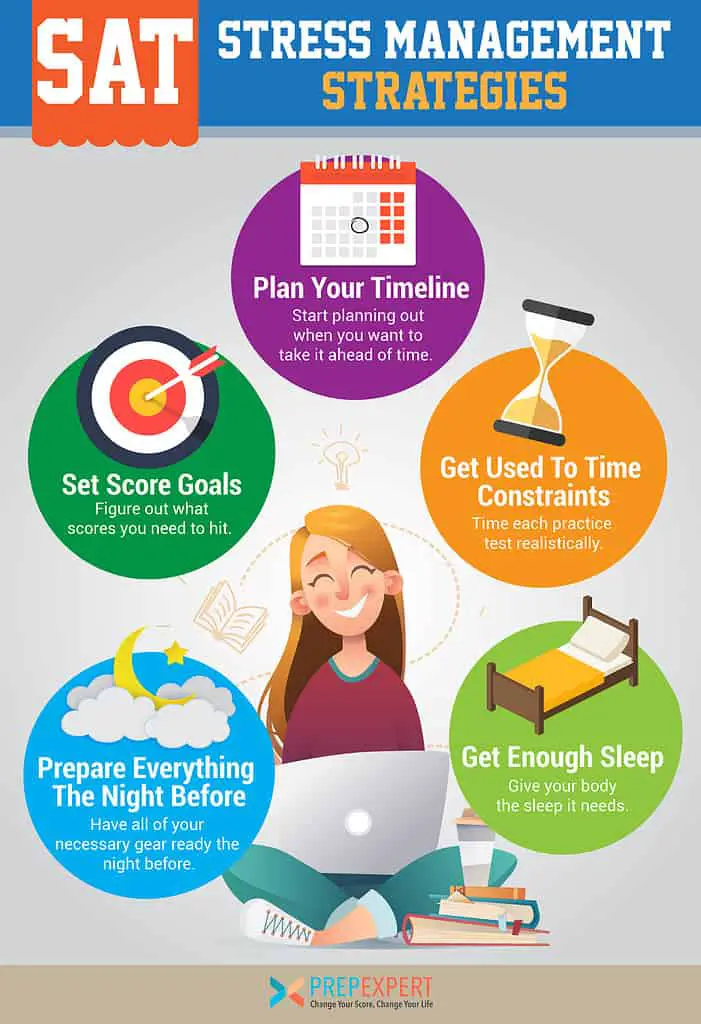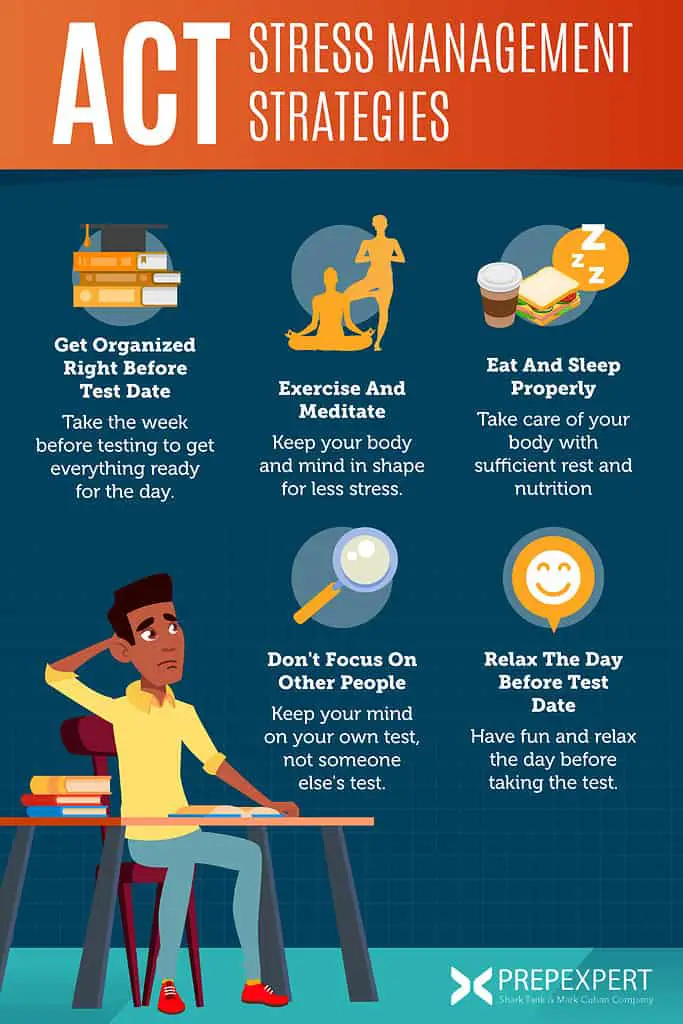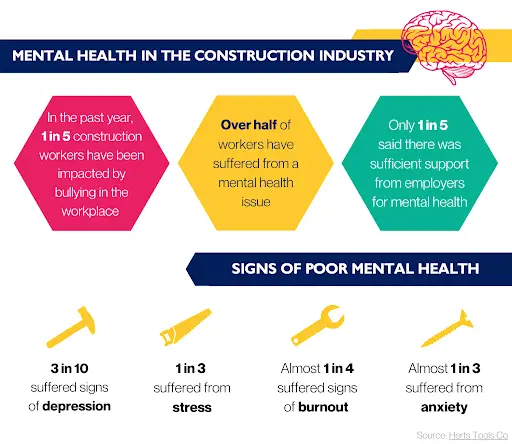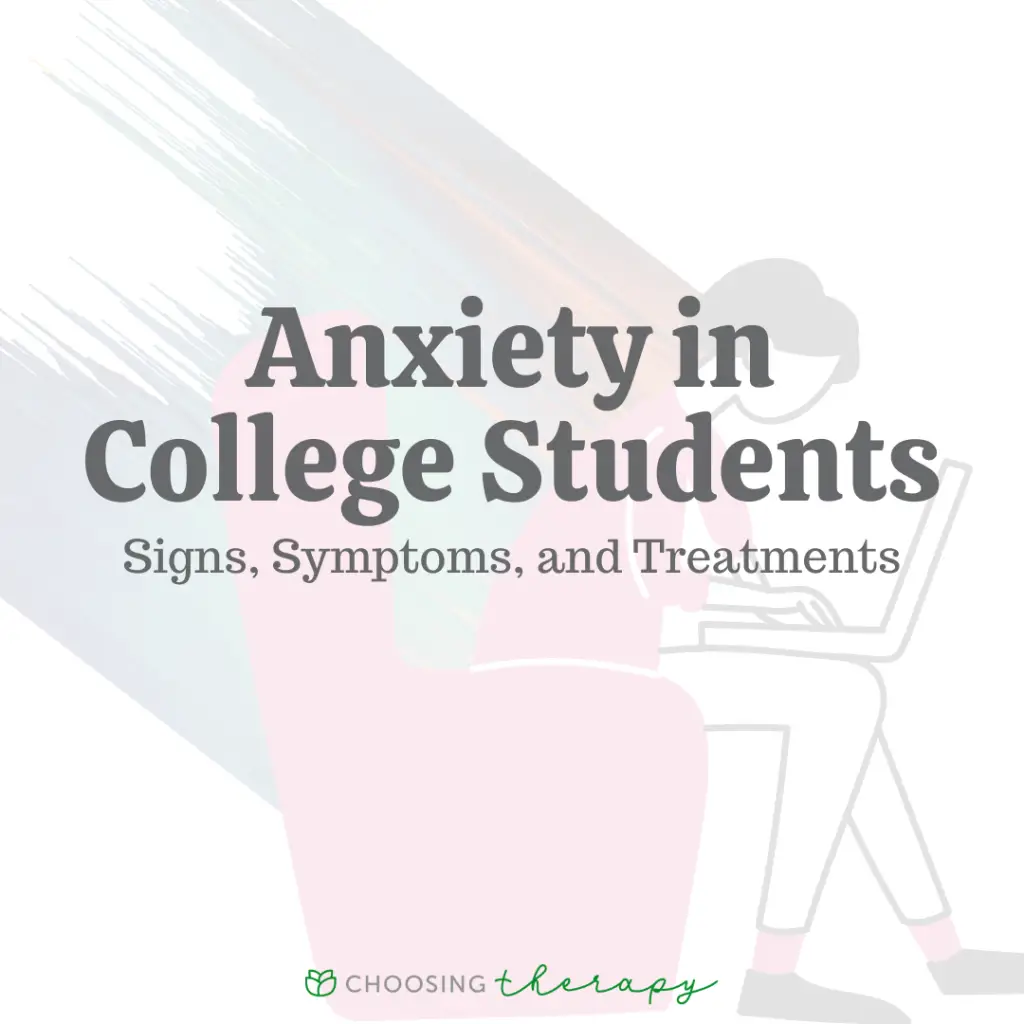Navigating through the SAT can be a nerve-wracking experience for many students. However, managing anxiety during this crucial test doesn’t have to be overwhelming. By implementing a few effective strategies, such as proper preparation, positive self-talk, and relaxation techniques, you can conquer your test anxiety and perform your best on the SAT.

This image is property of empowerly.com.
Understanding Anxiety
Anxiety is a common emotional state that is characterized by feelings of unease, worry, and fear. It is a natural reaction to stressful situations and can be triggered by a variety of factors. While experiencing anxiety is a normal part of life, excessive and persistent anxiety can negatively impact one’s overall well-being. Understanding the causes and factors that contribute to anxiety is crucial in managing and alleviating it.
Definition and Causes
Anxiety can be defined as a state of excessive worry or fear about an anticipated event or situation. It often arises when individuals feel overwhelmed by the demands or expectations placed upon them. The causes of anxiety can be both psychological and biological in nature. Psychological factors such as perfectionism, self-doubt, and fear of failure can contribute to anxiety. Biological factors, such as imbalances in brain chemistry or genetics, can also play a role in the development of anxiety.
Anxiety Specific to Standardized Tests Like SAT
For many students, the SAT (Scholastic Assessment Test) is a significant source of anxiety. This standardized test is often viewed as a critical determinant of academic and future success. The pressure to perform well, fear of failure, and the importance placed on SAT scores by colleges and universities can all contribute to heightened anxiety levels. It is important to recognize and address these anxieties to effectively prepare for the SAT and perform at one’s best.
Psychological and Biological Factors Influencing Anxiety
Anxiety is influenced by a combination of psychological and biological factors. Psychological factors, such as negative thinking patterns, perfectionism, and low self-esteem, can contribute to the development and maintenance of anxiety. Biological factors include imbalances in neurotransmitters, such as serotonin and dopamine, which regulate mood and emotions. Understanding the interplay between psychological and biological factors can help individuals develop effective strategies to manage and alleviate anxiety.
Preparation: The Key to Alleviating Anxiety
Preparing for the SAT is essential for reducing anxiety and increasing confidence. By implementing effective study techniques, utilizing practice tests, and identifying and working on weak areas, students can alleviate anxiety and improve their performance.
Study techniques for efficient preparation
To make the most of your study time, it is important to use efficient study techniques. This includes breaking down the material into manageable chunks, creating a study schedule, using active learning strategies such as summarizing and teaching the concepts to others, and taking regular breaks to maintain focus and prevent burnout. By employing these techniques, you can maximize your learning and reduce anxiety associated with feeling overwhelmed or underprepared.
Benefits of Practice Tests
Taking practice tests is an invaluable tool in SAT preparation. Practice tests not only familiarize you with the format and content of the exam but also help simulate test-day conditions. By regularly practicing with timed practice tests, you can gauge your progress, identify areas of strength and weakness, and build confidence. Additionally, practice tests provide an opportunity to develop effective test-taking strategies, such as time management and question prioritization, which can greatly reduce anxiety during the actual exam.
Identifying and Working on Weak Areas
Identifying your weak areas is crucial for targeted study and reducing anxiety. By conducting a thorough assessment of your strengths and weaknesses in different subject areas, you can allocate more time and resources to areas that require improvement. This focused approach not only helps in optimizing your study time but also boosts your confidence by addressing areas of concern. Utilize study guides, online resources, and seek help from teachers or tutors to strengthen weak areas and overcome anxiety associated with them.
Time Management
Effective time management is essential for SAT preparation and reducing anxiety. By developing a study schedule, balancing regular coursework and SAT preparation, and ensuring adequate rest and leisure time, you can optimize your productivity and well-being.
Developing a Study Schedule
Creating a study schedule is a key component of effective time management in SAT preparation. Start by assessing your available time and commitments, then allocate specific time blocks for studying each subject. Be sure to include regular breaks to prevent burnout and maintain focus. Having a structured study schedule not only helps you stay organized and motivated but also reduces anxiety by providing a clear plan of action.
Balancing Regular Coursework and SAT Preparation
Balancing regular coursework and SAT preparation can be challenging, but it is crucial for managing anxiety and maintaining academic performance. Prioritize your commitments and allocate time for both regular coursework and SAT preparation. This may involve setting aside dedicated time each day or designating specific days for SAT study. By finding a balance between the two, you can prevent overwhelm and ensure that all areas of your academic life receive the attention they deserve.
Ensuring Adequate Rest and Leisure Time
While effective preparation is important, it is equally important to ensure adequate rest and leisure time. Pushing yourself too hard without breaks can lead to burnout and increased anxiety. Schedule time for activities you enjoy, such as hobbies, spending time with friends and family, or engaging in physical exercise. Taking care of your well-being and maintaining a healthy work-life balance will help reduce anxiety and improve overall performance.
Maintaining a Healthy Lifestyle
A healthy lifestyle plays a significant role in managing anxiety, as it directly affects both physical and mental well-being. By incorporating regular exercise, proper nutrition and hydration, and ensuring sufficient sleep, you can optimize your body’s ability to cope with stress and reduce anxiety levels.
Importance of Regular Exercise
Regular exercise is known to have numerous benefits for mental health, including anxiety reduction. Engaging in physical activity releases endorphins, which are known as “feel-good” chemicals that boost mood and reduce stress. Consider incorporating activities such as walking, jogging, dancing, or participating in sports into your routine. By making exercise a regular part of your life, you can effectively manage anxiety and improve your overall well-being.
Nutrition and Hydration
Proper nutrition and hydration are essential for maintaining optimal physical and mental functioning. Be sure to consume a well-rounded diet that includes a variety of fruits, vegetables, whole grains, lean proteins, and healthy fats. Avoid excessive intake of caffeine and sugary foods, as they can exacerbate anxiety symptoms. Staying hydrated by drinking an adequate amount of water throughout the day is also important for overall well-being. By fueling your body with nutritious food and staying hydrated, you can support your brain and body in managing anxiety effectively.
Importance of Good Sleep
Sleep plays a vital role in managing anxiety and optimizing cognitive function. Lack of sleep can contribute to increased anxiety levels and impair concentration and memory. Aim for 7-9 hours of quality sleep each night to ensure your body and mind are well-rested. Establish a consistent sleep routine by going to bed and waking up at the same time each day. Create a sleep-friendly environment that is dark, quiet, and free from distractions. By prioritizing good sleep hygiene, you can improve your ability to manage anxiety and perform at your best.

This image is property of prepexpert.com.
Mindset and Visualization Techniques
Developing a positive mindset and utilizing visualization techniques can significantly impact anxiety management during SAT preparation. By incorporating positive affirmations, visualizing success, and adopting a growth mindset, you can cultivate a positive mental framework and enhance your confidence.
Positive Affirmations
Positive affirmations are powerful statements that help counter negative self-talk and promote a positive mindset. Repeat affirmations such as “I am capable,” “I am prepared,” or “I am confident” to yourself regularly, especially before and during your SAT preparation. By replacing self-doubt with positive thoughts, you can shift your mindset and alleviate anxiety.
Visualization of Success
Visualization is a technique that involves mentally imagining successful outcomes. Close your eyes and visualize performing well on the SAT, confidently answering questions, and achieving your desired score. Engage all your senses in this visualization exercise to make it more vivid and impactful. By regularly visualizing success, you can enhance your confidence and reduce anxiety associated with the exam.
Power of a Growth Mindset
Adopting a growth mindset is crucial in managing anxiety and embracing challenges. Rather than viewing failure or setbacks as permanent, a growth mindset sees them as opportunities for learning and growth. Remind yourself that the SAT is an opportunity to showcase your abilities and improve, regardless of the outcome. Embrace challenges, learn from mistakes, and believe in your ability to grow and succeed. A growth mindset can help alleviate anxiety by reframing setbacks as stepping stones towards personal and academic growth.
Self-Care Techniques
Self-care techniques play a vital role in managing anxiety during SAT preparation. By incorporating mindfulness and relaxation techniques, practicing deep breathing exercises and yoga, and engaging in hobbies and other stress-busters, you can promote mental and emotional well-being.
Mindfulness and Relaxation Techniques
Mindfulness involves being fully present and aware of the present moment, without judgment. Practice mindfulness exercises, such as mindful breathing or body scans, to calm your mind and reduce anxiety. Engage in relaxation techniques such as progressive muscle relaxation or guided imagery to release tension and promote a sense of calm. By incorporating these techniques into your daily routine, you can cultivate a peaceful and balanced state of mind.
Deep Breathing Exercises and Yoga
Deep breathing exercises and yoga are effective techniques for relaxation and anxiety reduction. Practice deep breathing exercises where you inhale deeply through your nose, hold for a few seconds, and exhale slowly through your mouth. This helps activate the body’s relaxation response and reduces anxiety symptoms. Incorporate yoga into your routine, focusing on poses that promote relaxation and stress relief. By incorporating deep breathing exercises and yoga, you can manage anxiety and enhance your overall well-being.
Hobbies and Other Stress-Busters
Engaging in hobbies and other stress-busting activities can provide a much-needed break from SAT preparation and alleviate anxiety. Dedicate time each week to pursue activities you enjoy, such as reading, painting, playing a musical instrument, or spending time in nature. Engaging in activities that bring you joy and relaxation can effectively reduce anxiety and improve your overall mental and emotional well-being.

This image is property of prepexpert.com.
Seeking Help when Necessary
While self-care strategies are essential, it is important to remember that seeking help from others is a sign of strength, not weakness. If you find that your anxiety becomes overwhelming and starts interfering with your daily life or SAT preparation, reaching out to teachers, counselors, and parents can be beneficial.
Talking to Teachers, Counselors, and Parents
Teachers, counselors, and parents are valuable sources of support and guidance. They can offer advice, resources, and tailored strategies to help manage anxiety during SAT preparation. Inform them about your concerns and ask for their assistance in developing effective study techniques or addressing specific areas of anxiety. Establishing open lines of communication can help alleviate anxiety and create a collaborative support system.
Professional Help and Therapy
In some cases, professional help and therapy may be necessary to effectively manage anxiety. Licensed therapists or mental health professionals can provide specialized guidance and evidence-based treatments, such as cognitive-behavioral therapy (CBT), which are highly effective in managing anxiety disorders. If your anxiety persists or significantly impacts your well-being, consider seeking professional help to develop coping strategies and address underlying issues.
Anti-Anxiety Medication – Pros and Cons
In certain situations, anti-anxiety medication may be prescribed by a healthcare provider to alleviate severe anxiety symptoms. Medication can provide temporary relief and help manage anxiety during SAT preparation. However, it is important to weigh the pros and cons, as medication may have potential side effects or dependency risk. Consult with a healthcare professional to discuss your options and make an informed decision regarding medication.
Test Day Anxiety Management
Test day can evoke heightened anxiety levels, but there are strategies and coping mechanisms that can help manage anxiety and perform at your best.
Having a Morning Routine
Establishing a morning routine can help set a positive tone for the day and reduce anxiety. Wake up early and engage in activities that promote relaxation and focus, such as stretching, meditating, or listening to calming music. Avoid rushing and give yourself enough time to get ready and gather all necessary materials. By starting the day with a calm and organized mindset, you can effectively manage anxiety during the test.
Arriving Early to the Test Center
Arriving early to the test center helps reduce test day anxiety. Plan your journey in advance and give yourself extra time to account for traffic or other unforeseen delays. Arriving early allows you to familiarize yourself with the test center, find your seat, and mentally prepare for the exam. By eliminating the stress of rushing and ensuring a smooth start, you can approach the test with a calmer mindset.
Coping Strategies During the Test
During the test, it is essential to have coping strategies in place to manage anxiety. If you feel overwhelmed, take a few deep breaths and remind yourself to stay calm and focused. Pace yourself and prioritize questions, focusing on the ones you feel most confident about. Take short breaks after completing sections to regroup and regain focus. By employing these coping strategies, you can effectively manage anxiety during the test and optimize your performance.

This image is property of blog.testrocker.com.
Preventing Panic in the Exam Hall
Approaching difficult questions, maintaining composure, and taking short breaks to regain focus are key strategies to prevent panic in the exam hall.
Approaching Difficult Questions
Encountering difficult questions can be overwhelming, but it is important to approach them strategically. If you encounter a challenging question, remain calm and read it carefully. Answer any parts of the question that you can, and if you are unsure, make an educated guess or move on to the next question. Avoid dwelling on difficult questions, as this can increase anxiety and consume valuable time. Trust in your preparation and remember that you can come back to challenging questions later if time allows.
Maintaining Composure
Maintaining composure is essential in preventing panic during the exam. If you feel your anxiety escalating, take a moment to close your eyes, take deep breaths, and remind yourself that you are prepared. Focus on the task at hand and avoid comparing your progress to others. Remember that everyone experiences anxiety to some degree, and maintaining composure will enable you to think clearly and perform your best.
Taking Short Breaks to Regain Focus
Taking short breaks during the exam can help you regain focus and manage anxiety. If you feel your concentration waning, take a moment to stretch, relax your muscles, or close your eyes and take a few deep breaths. Use these breaks to reset your mind and recharge. However, be mindful of time constraints and ensure that breaks are short and purposeful. By incorporating short breaks strategically, you can prevent information overload and maintain focus throughout the exam.
Post-SAT Reflection and Relaxation
After the SAT, it is important to take time for reflection, relaxation, and self-care. By reflecting on your performance, avoiding obsessing over results, and rewarding yourself, you can effectively manage post-exam anxiety.
Reflecting on Performance
Take time to reflect on your performance after the SAT. Assess your strengths and areas for improvement objectively. Recognize your achievements, as well as the efforts you put into your preparation. Identify any patterns or strategies that worked well and incorporate them into future study plans. Use the experience as a learning opportunity and an opportunity to grow, rather than dwelling on perceived mistakes or shortcomings.
Not Obsessing Over Results
Avoid obsessing over your SAT results and remember that they are just one aspect of your academic journey. While SAT scores are important, they do not define your worth or determine your future success. Understand that results are not entirely within your control, and there are plenty of other factors that colleges and universities consider during the admissions process. Trust in your abilities and focus on the aspects of your academic profile that you can control, such as your grades, extracurricular activities, and personal statement.
Rewarding Yourself After the Test
After the SAT, it is important to reward yourself for your hard work and dedication. Treat yourself to a well-deserved break, engage in activities you enjoy, and spend quality time with loved ones. Celebrate your accomplishments and acknowledge the effort you put into your preparation. By rewarding yourself, you reinforce the positive aspects of your experience and reduce anxiety associated with post-exam stress.
Managing anxiety during the SAT requires a comprehensive approach that encompasses understanding anxiety, effective preparation, time management, maintaining a healthy lifestyle, adopting a positive mindset, implementing self-care techniques, seeking help when necessary, and implementing strategies to manage test day anxiety. By incorporating these strategies into your SAT preparation, you can navigate the exam process with greater ease, reduce anxiety, and maximize your performance. Remember, the SAT is just one part of your academic journey, and managing anxiety will not only benefit your SAT experience but your overall well-being as well.

This image is property of blog.masterclassspace.com.


